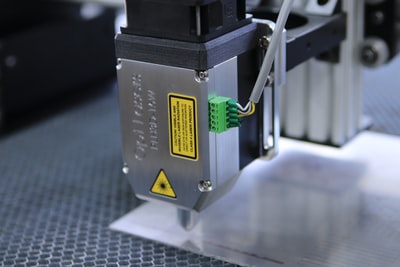REMEMBER IT!

– Capacity utilisation is the percentage of total capacity that’s actually achieved during a given period of time.capacity utilisation = (actual level of output / maximum possible output) x 100- There are reasons why a business may produce under 100% capacity. – Working at high capacity is a positive way for a business to function. However, there are problems associated with it.
– Production efficiency can be measured through productivity, unit costs, and the number of non-productive resources.
– Productive efficiency is the lowest cost per unit at which production can take place.
– A stock control system ensures that a business never runs out of stock.
– A re-order level is the minimum amount of stock that will be held by a business before it re-orders more from suppliers.
– The re-order quantity is the amount of stock and raw materials that a business will re-order from its suppliers.
– The buffer stock is a little extra stock in order to deal with the unexpected.
– The lead time is the period of time between a business ordering new stock and it being delivered.
– A lot of businesses use a stock rotation system, also known as a First In First Out (FIFO) system.
– Total Quality Management (TQM) is used by businesses to prevent errors and waste from occurring throughout the whole of the organisation.
– A quality circle is a group of workers who meet on a regular basis in order to discuss problems occurring with the quality of production.
– Zero defects is a level where there are no defects in a product thereby saving on waste and time.
– Kaizen is a Japanese word which means change for the better. The notion of Kaizen links in with other concepts like TQM And quality circles as it aims to reduce waste, time required, and production costs.

– In order to have a loyal customer base the quality of its output is very important for a business.
– Quality control is important for checking the quality not only of the end product but also the raw materials and supplies.
– It is vital that a business keeps up-to-date with the needs of its customers.
– Customer service is the provision of service to customers before, during and after a purchase.
– It’s important that the customer service provided is carefully monitored so that bad practices can be stamped out.
– A business that boasts a good customer service can have a competitive advantage over any rivals which can lead to better profit margins.
——————————————————
TEST IT!
- Simon is in the process of taking over a major hotel. Currently the management team relies on its staff to mark down the amount of stock available for each department. Simon is keen to computerise the stock system.
a) Why would computerising the hotel’s stock system make it more efficient?
b) Currently food supplies for the restaurant are ordered from another city. Simon wants to find a supplier in the city instead. Explain how this improve the hotel’s stock control system.

a) Explain what is meant by customer service.
b) Give three ways in which Tracy can improve the customer service provided by her company.
c) Customer service is one way in which Tracy can monitor that her company is meeting the needs of its consumers. Describe two others ways she can monitor this.
3. Quality is a very important issue for the majority of businesses. Explain how each of the following can help improve quality within a business.
a) quality circles
b) quality assurance
c) customer satisfaction surveys
ANSWERS
1. a) Answer should include:
- The hotel can keep an accurate check on the stock levels.
- It gets rid of human error.
- Costs and waste can be reduced.
b) Answer should include:
- The lead time is significantly reduced.
- Easier to keep up with orders.
- Minimises the time between paying for stock and receiving it.
- Minimises the chance of delays.
2. a) Customer service is the provision of service to customers before, during and after a purchase.
b) Answers include:
- Ensuring enquiries are answered promptly.
- Ensuring that customers are listened to.
- Dealing with complaints efficiently.
- Ensuring customer service staff are always helpful and polite.
- Customer service staff training.
c) Answers include:
- Through focus groups.
- Through feedback from employees.
- By employing a mystery shopper.
- Reviewing complaint letters.
3. a) The circle discusses problems occurring and finds solutions which it then implements and monitors. Quality can then be improved through the implementation of their recommendations.
b) Standards set by the business which must be kept. This ensures a set level of quality is maintained.
c) Recurring issues can be identified and solutions found to improve the quality of the business.